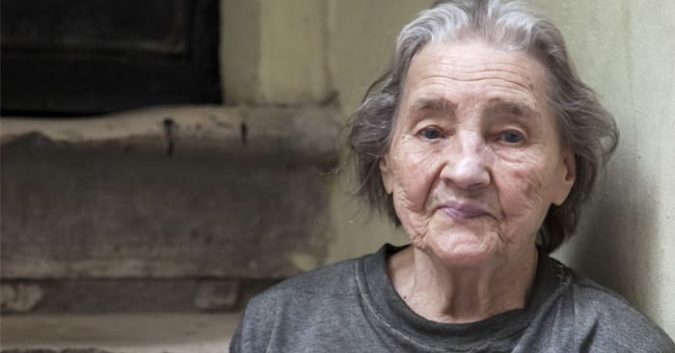When CMS wrote a rule allowing nursing homes to enforce binding arbitration earlier this year, the mammoth task of choosing a safe place to live became even harder for Medicaid recipients. These elders are vulnerable and, as a recent study confirmed, subject to terrible treatment at 1 of 3 of the nation’s elderly care facilities. Now, this monstrous threat has sprouted a new head. Nursing homes seem to be able to pick and choose which Medicaid residents they care for – and if they don’t want them, they simply dump them.
A recent case involves an 82-year-old California woman separated from her husband, who lived with her at the Sacramento-based facility Pioneer House, after receiving temporary treatment at a nearby hospital. After her treatment, Pioneer House refused her readmission.
This is unequivocally illegal. Can nursing homes really dodge the law to this extent?
The Eviction Epidemic
Unfortunately, residents usually have little choice in the matter. The California woman, who brought a case against Pioneer House, was later defended by advocacy group AARP Foundation, but the organization said hers wasn’t the first case they’d seen. In fact, wrongful eviction of Medicaid residents is a growing trend.
According to a 2016 Associated Press report, evictions are up 57 percent since 2000. It’s become common practice among nursing homes to purge “challenging” residents – mostly Medicaid patients on low income or suffering from illnesses that require greater levels of care, like dementia – when the homes get tired of them. With the odds stacked against them, added to the opportune circumstances of hospitalizations, these residents are easy targets.
Nursing home lobbyist American Health Care Association (AHCA) defends the eviction process as necessary for patients who endanger themselves or the safety of others. And on its website, Pioneer House’s owner Retirement Housing Foundation writes that its “concern for the whole person includes residents, their families, and staff, and RHF strives to be fair in all relationships.”
But according to her lawsuit, the California woman was treated as nothing more than a hindrance, whose bed could be filled by a private-pay patient likely to bring in higher Medicare reimbursements. In other words, the foundation’s only “concern” was for its bottom line.
Greed Is No New Obstacle to Residents’ Safety
1.6 million elders currently live in 15,000 nursing homes across the country, the majority of which attribute Medicare and Medicaid reimbursements to 90 percent of their revenues. Recent cuts to Affordable Care Act budgets have forced smaller, private homes to close, leaving massive, corporate-chain facilities a greater share of the market – yet these are the facilities we should be most worried about.
For-profit homes have been known to abuse the Medicaid system, administering patients with unnecessary therapies that run up higher bills. Many keep staff at illegally low levels or keep their facilities in unsanitary disarray, so as to keep expenses to a minimum. All trends point to the same motives: prioritizing profits over patients.
By doing so, these corporations allow substandard care – and even elder abuse – to flourish. Inadequate staffing leaves many residents neglected, while inadequate screening of staff leaves others in the care of dangerous criminals. The 30 percent of facilities cited for nursing home abuse by these “caregivers” show harrowing evidence of physical, emotional, financial, and sexual harm. Inadequate resources are also leaving 33 percent of patients gravely malnourished. Clearly, eviction is only the tip of the iceberg.
What Are Residents’ Families to Do?
When targeted, most evictees and their families seek the help of ombudsmen, consumer advocacy organizations, and attorneys. However, some families are unsure where to turn. It’s devastating enough that the offending homes leave them with few options. Worse is the fact that available records, as unearthed by Associated Press investigations, show only a glimpse of the problem. Between 8,000 and 9,000 people file eviction complaints with the government, but many more, unaware of their rights and overpowered by nursing homes’ authority, do not.
The same is true for other types of mistreatment and abuse. Evidence suggests nursing home abuse cases are severely underreported, either hidden by elders who fear retribution or burdening their families, not taken seriously when taken to authorities, or hidden by authorities themselves. While many homes are happy to maximize profits at the expense of residents’ health and safety, owners and investors aren’t so eager to forfeit their reputations.
This makes action very difficult for families to take. But if a loved one is mistreated, evicted, or abused, they have legal rights that must be enforced whenever possible. These residents aren’t just losing their homes – they’re losing their friends, familiar caregivers, even spouses in the California case, and the only life they know. Families can and should seek justice. The least these vulnerable elders deserve is to spend their last days with their loved ones.
